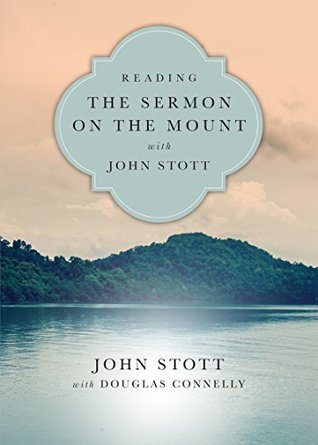- Bible
- Read the Bible
- Bible Versions
- Verse of the Day
- Reading Plans
- Verses by Topic
- Books of the Bible
- Bible Images
- Study
- Commentaries
- Concordances
- Dictionaries
- Encyclopedias
- Sermons
- Bible Atlas & Maps
- BP Wiki
- Devotionals
- Today's Devotionals
- Light of the World
- All Devotionals
- Inspirational Quotes
- More
- Picture Quotes
- Videos
- Inspirational
- Bible Study
- What The Bible Says
- Bible Q&As
- Daily Bread
- Bible by Genre
- Bible Stories
- Random Bible Verse
- Community
- Store
Reading the Sermon on the Mount with John Stott
by John Stott
The Sermon on the Mount is Jesus' most inspiring and challenging description of the Christian counterculture. John Stott's teaching on this timeless text shows how its value system, ethical standard, religious devotion and network of relationships clearly distinguish it from both the nominal church and the secular world.
In this volume Stott's The Message of the Sermon on the MountThe Message of the Sermon on the Mount is offered in brief readings suitable for daily use which take us passage by passage through the Scripture text. Including eight weekly studies for individuals or groups, this book covering Matthew 5-7 allows readers to enjoy the riches of Stott's writings in a new, easy-to-use format.
John Stott was one of the most beloved and masterful Bible teachers of the last fifty years. His books have sold in the millions. Christians on every continent have heard and read his instructive and inspiring expositions of Scripture. The books in the Reading the Bible with John Stott series offer the essential message of Stott's teaching, largely drawn from his Bible Speaks Today volumes, and present it in a format suitable for daily reading. Questions at the end of each section make these books even more useful for individuals or groups.
In this volume Stott's The Message of the Sermon on the MountThe Message of the Sermon on the Mount is offered in brief readings suitable for daily use which take us passage by passage through the Scripture text. Including eight weekly studies for individuals or groups, this book covering Matthew 5-7 allows readers to enjoy the riches of Stott's writings in a new, easy-to-use format.
John Stott was one of the most beloved and masterful Bible teachers of the last fifty years. His books have sold in the millions. Christians on every continent have heard and read his instructive and inspiring expositions of Scripture. The books in the Reading the Bible with John Stott series offer the essential message of Stott's teaching, largely drawn from his Bible Speaks Today volumes, and present it in a format suitable for daily reading. Questions at the end of each section make these books even more useful for individuals or groups.
BUY NOW
Kindle Edition, 121 pages
Published August 5th 2016 by IVP Connect
© 2025 Bibleportal.com All rights reserved.

John Robert Walmsley Stott is a British Christian leader and Anglican clergyman who is noted as a leader of the worldwide evangelical movement. He is famous as one of the principal authors of the Lausanne Covenant in 1974.
Stott was ordained in 1945 and went on to become a curate at All Souls Church, Langham Place (1945-1950) then rector (1950-75). This was the church in which he had grown up, and in which he has spent almost all of his life, aside from a few years spent in Cambridge.
Stott played a central role at two landmark events in the history of British evangelicalism. He was chairing the National Assembly of Evangelicals in 1966, a convention organised by the Evangelical Alliance, when Martyn Lloyd-Jones made an unexpected call for evangelicals to unite together as evangelicals and no longer within their 'mixed' denominations.
... Show more